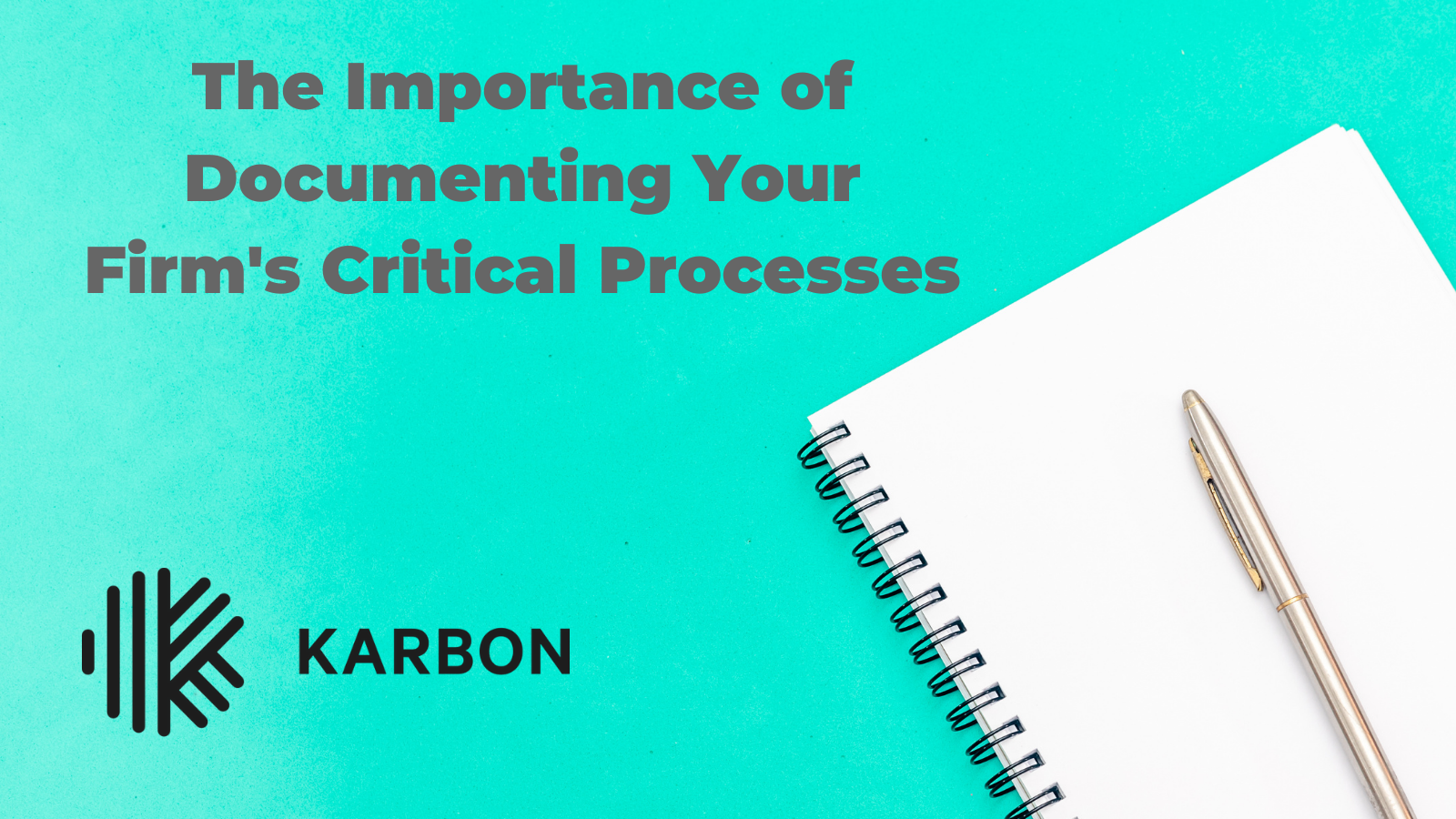Your accounting practice is a mass of intertwined processes.
It’s the nature of what you do—it’s complicated and process-driven. This is exactly why documenting those processes is crucial for your firm’s success.
By documenting and standardizing processes, you transfer them into repeatable actions that serve as a guide for you and your staff to reference as they are needed. When you do this, you enable your firm to scale more effectively, increase your team’s productivity, and ensure everything your firm does is consistent.
Enable your firm to scale easily
You don’t always need a bigger team to scale your firm. You just need to be more efficient.
There is every chance that with some refinement, the resources you have are plenty to scale your accounting practice.
To do so, you need to improve your efficiencies in everything you do. This includes redesigning, defining, and importantly, documenting your processes.
By engaging in this, you’re identifying where current inefficiencies are creating bottlenecks, which processes need improvement, and which are better off gone. As a result, you’re finding out exactly what works for your firm and your team.
If you can do this successfully, scaling your practice will be a certainty. All without increasing your staff overheads.
“Standardizing and refining your processes allows you to trim excess costs and increase your prices. anytime you can boost revenue while at the same time reducing costs, your practice can grow exponentially.” — Rachel Fisch, Wagepoint
Increase staff productivity
By documenting your processes, you’re formalizing information. You’re extracting it from your head or your team member’s head or the several other locations where it exists, and you’re making it more accessible for everyone.
Documenting and standardizing your firm’s standard operating procedures into a centralized location is a sure-fire way to boost productivity.
Let’s say your newly-hired bookkeeper has a question about an end-of-month reporting procedure. If that procedure is documented and standardized, they can refer directly to the documentation, rather than asking you or a colleague. Ultimately, this means they’re:
- More likely to get an answer quicker
- Not interrupting someone else
- Not relying on someone else for the information they require
Documenting processes also means that when the processes are updated, those updates can be made directly in the documentation itself, which can then be shared with your team. Instead of needing to communicate updates either verbally or in writing somewhere out of context, your entire team is reading from the same literal and figurative page.
Let’s go back to your new bookkeeping hire. They have completed their onboarding and are now ready to provide value to your clients. Though, as you’d expect, they haven’t completed your firm’s processes before and they’ll need a handful of tries before they can complete tasks autonomously. By having processes documented, during this ease-in time, they can easily refer to their next step, rather than spending time trying to remember where to go next.
Offer consistency
You can’t scale your firm or boost productivity if:
- Work is being performed inconsistently
- There are inconsistencies in experience for your clients and new hires
If each of your team members are using different methods to perform the same tasks, you’re running an unwinnable race.
In this case, consistency is key in increasing productivity. And without documenting your firm’s critical processes, you won’t achieve the consistency you need.
At the same time, you need to be delivering a consistent experience to your clients.
While some processes will, at times, need slight adjustments for clients with varying situations, a standard, documented way that most work should be performed is essential.
Otherwise, you won’t know if your team is reinventing the wheel each time they complete common tasks.
Plus, consistent and efficient client experiences will most certainly attract positive NPS ratings for your accounting firm.
Staff onboarding is another process that should be standardized and documented. A consistent onboarding experience for staff means:
- Everyone gets the same kick-off at your firm, ensuring no one misses out on understanding your mission, values, and other critical aspects of your business.
- Your management team or HR team are onboarding your new hires in the most effective and efficient way possible.
Take the time today, to benefit tomorrow
Standardizing and documenting your firm’s standard operating procedures is a big task. It will take time and input from all stakeholders involved. But the effort you put in today to formalize your procedures will certainly reap rewards when your firm is successfully scaling, your productivity is higher than ever, and your team is running like a well-oiled machine.

